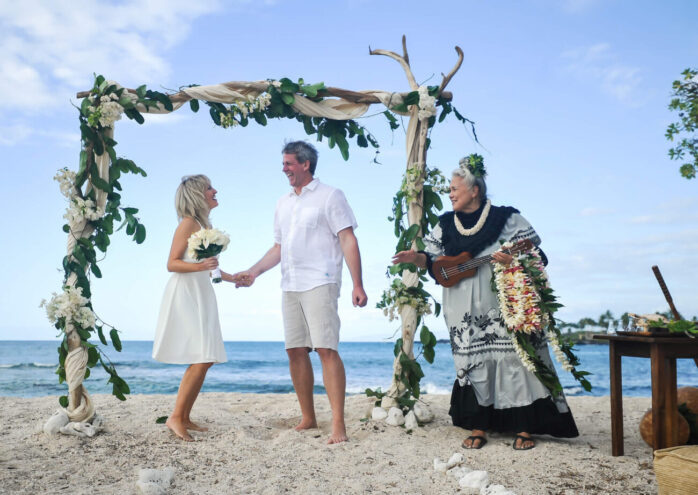
Hawaii offers a myriad of stunning locations, each island with its unique charm and characteristics. Oahu, known for its bustling city life and famous Waikiki Beach, contrasts with Maui’s romantic and luxurious resorts. The Big Island presents diverse landscapes, from volcanic terrains to lush rainforests, while Kauai, the Garden Isle, boasts enchanting natural beauty and a serene atmosphere. Your choice depends on the wedding vibe you’re aiming for, whether it’s a vibrant beach party or a tranquil, intimate gathering.
Securing the Perfect Venue
Your choice of venue plays a pivotal role in shaping your big day. Hawaii offers a wealth of options, from luxurious resorts to exclusive private villas and picturesque beachfront settings. When making your decision, take into account key factors such as guest capacity, privacy, ease of access, and the scenic backdrop for both your ceremony and those all-important photographs.
It’s worth noting that popular venues tend to fill up rapidly, especially during the peak wedding season, which typically spans from June to September. Therefore, it’s highly advisable to secure your chosen location at least a year in advance. Additionally, don’t forget to consider the services of a skilled Hawaii wedding videographer to capture every memorable moment of your special day.
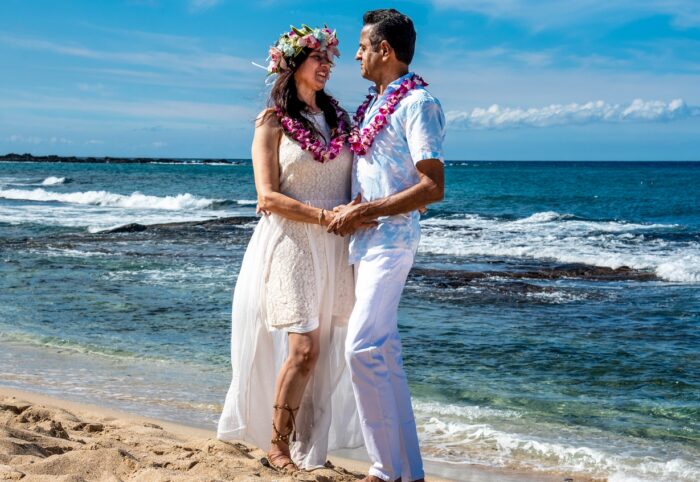
Understanding Local Marriage Requirements
Navigating the legal aspects is crucial. Hawaii requires a marriage license obtainable from the Department of Health. The process is straightforward: both parties must appear in person with valid identification and complete an application. There’s no residency requirement or waiting period, making it convenient for destination weddings. Ensure you understand these legalities to avoid any last-minute hurdles.
Selecting the Right Vendors
Local vendors understand the nuances of Hawaiian weddings. From photographers familiar with the best lighting and scenic spots to caterers specializing in local cuisine, their expertise is invaluable. Research thoroughly, read reviews, and possibly visit beforehand to meet vendors in person. Coordinating with them remotely requires clear communication and trust.
Embracing Hawaiian Traditions and Culture
Incorporating Hawaiian traditions can add authenticity and magic to your wedding. From a lei exchange ceremony, a hula performance, to a local ukulele player, these elements celebrate the rich Hawaiian culture. Respect and sensitivity towards these traditions are paramount, so seek guidance from local experts to ensure cultural appropriateness.
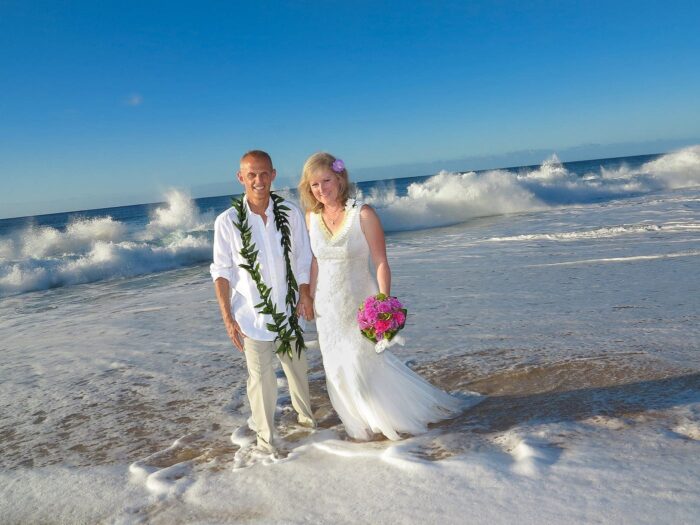
Planning for Weather and Seasonal Considerations
Hawaii’s weather is generally pleasant year-round, but it’s important to plan for occasional rain, especially in winter months. Opt for venues with indoor options or have a backup plan. Be mindful of seasonal variations, such as crowded tourist seasons or higher prices during holidays. Off-peak seasons might offer more privacy and better rates.
Creating an Itinerary for Guests
Your wedding is also a vacation for your guests. Provide them with an itinerary that includes not just the wedding events but also suggests activities and places to explore in Hawaii. Consider group activities like luaus, snorkeling trips, or guided tours to make their experience memorable.
Managing Logistics and Accommodations
Coordinate travel and accommodation details for your guests. Consider booking a block of rooms in a hotel or resort to ensure availability and possibly secure a group rate. Provide clear information about transportation options, including airport transfers, rental cars, or shuttle services.
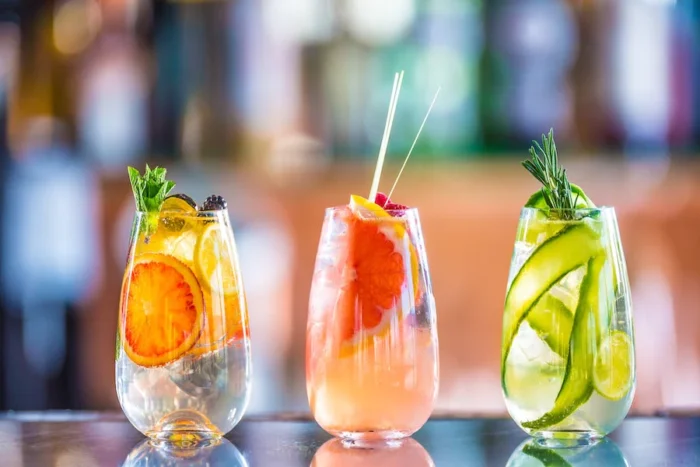
Personalizing Your Wedding Details
Personal touches make your wedding unique. Whether it’s a custom wedding invitation with Hawaiian motifs, a signature cocktail inspired by local flavors, or personalized wedding favors, these details will make your wedding memorable. Involve your partner in these choices to reflect both of your personalities.
Ensuring Seamless Communication
With a destination wedding, effective communication is key. Keep your guests informed about the details through a wedding website, emails, or a dedicated social media group. Regular updates about the schedule, dress code, weather, and other logistical aspects will help your guests plan their trip smoothly.
Budgeting for Your Dream Wedding
Budgeting is a critical aspect of wedding planning, especially for a destination wedding in Hawaii. Costs can escalate quickly, so it’s essential to set a realistic budget early on. Factor in travel and accommodation for yourselves, the venue, catering, decor, photography, activities for guests, and any additional services like a wedding planner. Remember that prices in Hawaii can be higher than on the mainland, so allocate your budget accordingly. Keep track of expenses and be prepared for unforeseen costs.
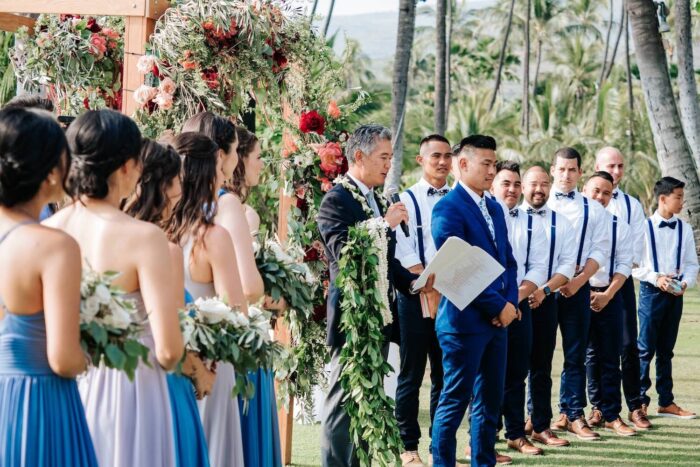
Navigating Cultural Sensitivities
Hawaii’s rich cultural heritage is one of its most appealing features, but it’s important to approach it with respect. When incorporating Hawaiian elements into your wedding, do so in a way that honors the culture. Avoid clichés or stereotypes and engage with local culture in a meaningful, respectful manner. Consider hiring a cultural advisor or working with vendors who can guide you in incorporating authentic and respectful Hawaiian traditions.
Dealing with Unpredictable Weather
While Hawaii is known for its beautiful weather, it’s also prone to sudden rain showers, especially in certain areas and seasons. Plan accordingly by selecting venues with indoor options or renting tents. Consider the time of year you choose to marry, as the rainy season might affect outdoor activities. Always have a Plan B for every part of your wedding day, from the ceremony to the reception.
Incorporating Eco-friendly Practices
Hawaii is known for its stunning natural landscapes and biodiversity. Consider how your wedding can minimize its environmental impact. Choose eco-friendly vendors, opt for digital invitations to reduce paper waste, and select decorations and favors that are sustainable. Consider a beach cleanup with your guests as a pre-wedding activity to give back to the island.
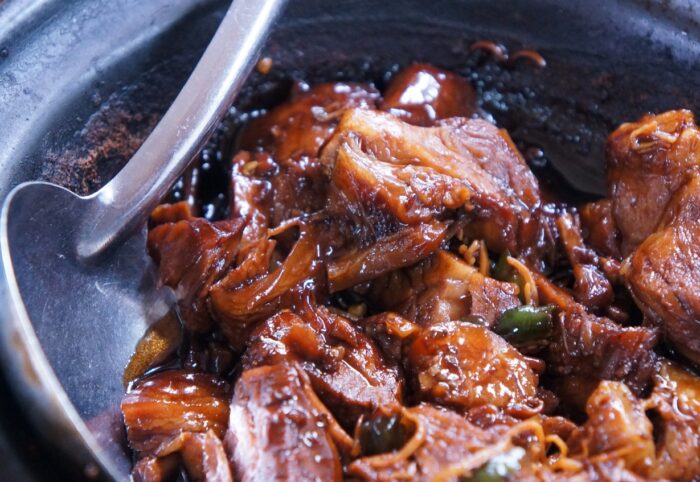
Making the Most of Local Cuisine
Hawaii’s culinary scene is a fusion of diverse influences and flavors. Embrace this by incorporating local dishes into your wedding menu. From fresh seafood to traditional Hawaiian dishes like poke, laulau, or a luau-style pig roast, local cuisine will add a unique flavor to your celebration. Work with your caterer to create a menu that showcases the best of Hawaiian flavors.
Summary
In crafting your perfect Hawaii destination wedding, attention to detail, respect for local culture, and a focus on your guests’ experience will ensure a memorable and joyous celebration. Embrace the beauty and spirit of Hawaii, and your wedding will not only be a reflection of your love but also a tribute to the enchanting spirit of the islands.







